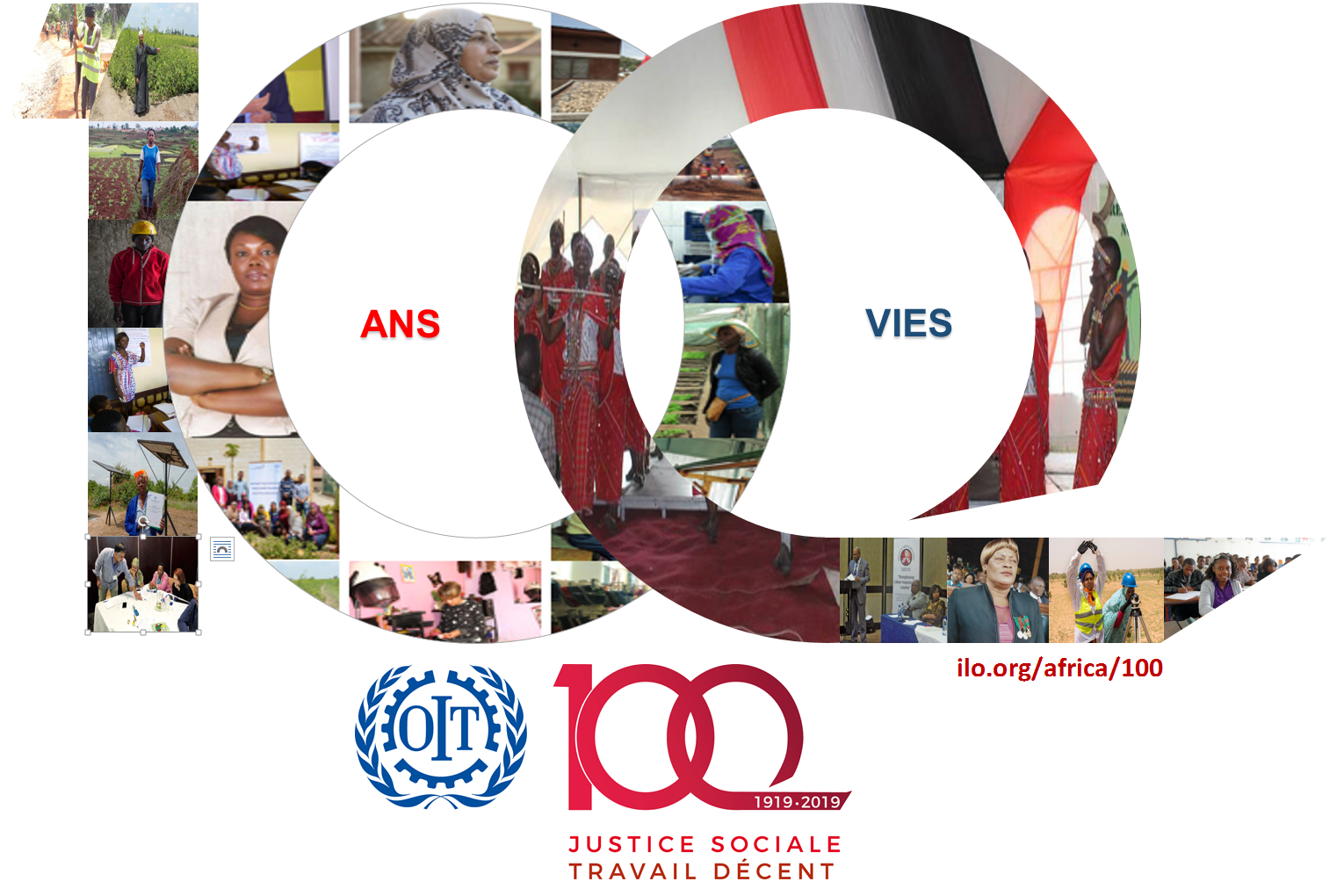« 100 Years – 100 Lives » | RWANDA - “The project helped national policies to reduce poverty and create jobs”
An ILO-led programme helped the government and social partners to make sure job creation goes along with economic growth.

KIGALI - The great majority of Rwandan workers eke out a living in the informal economy where, despite working for long hours in difficult conditions, they do not earn enough to lift themselves and their families out of poverty. Youth and women are the most affected by “working poverty”.
The problem is exacerbated by the fact that most young people entering the labour market do not find employment either because the jobs simply do not exist, or because their skills do not meet the requirements of potential employers.
Rwanda’s development strategy has for many years focused on economic growth, with the assumption that employment would increase alongside with the economy. However, while the Rwandan economy has been growing faster than most African economies over the past decade, this growth has been largely jobless.
To address this situation, the Government of Rwanda and the UN agencies in the country designed a joint UN programme aimed at promoting jobs for youth and women. It involved several UN agencies _ with ILO as the lead organization – as well as Government authorities and civil society organizations.
The joint programme analysed the country’s development strategy from the employment perspective. It identified as a labour market constraint the mismatch between the number of jobs required versus the number of jobs the economy creates.
The aim, therefore, was to create a structural shift that would raise the annual number of jobs created from 104,000 off-farm jobs to 200,000 jobs.
“The project strategy sought to equip the Government and other key stakeholders with informed policy-making capacities and tools that would enable them to revise and coordinate the implementation of national policies to reduce poverty and create jobs. It also aimed at enabling young people to acquire skills needed by potential employers or to start and run their own businesses,” said Jude Muzale, National Project Coordinator.
New perception
The programme has had a significant impact in perception of employment issues. Employment is no longer assumed to be an automatic derivative of economic growth. Instead, deliberate efforts are now being made through national plans to convert economic growth into more and better jobs.
This has been achieved through high-level policy workshops, pro-employment research and employment-centred analysis of macroeconomic policies and training and tool development on mainstreaming employment in national policies and budgets.
Interventions regarding enterprise and entrepreneurship relied primarily on ILO’s “Start and Improve your Business” package. This was implemented in partnership with the Rwandan Business Development Fund (BDF), which is a public company established to consolidate existing government facilities that support the development of small and middle-sized enterprises.
The ILO trained all BDF’s district officers as master trainers, organised partnership workshops with a range of NGOs and other organizations supporting livelihood interventions, and provided a licence to print the ILO training materials. As a result, over 12,000 beneficiaries were trained over a period of three years.
Some 72 per cent of those beneficiaries reported either having received BDF’s support in accessing finance, directly or indirectly, and 45 per cent of all beneficiaries started or expanded their businesses using BDF and ILO support.
Part of the development strategy
These interventions have prompted the Government to embed employment objectives and targets into Rwanda’s vision 2050 and the country’s 5-year development strategy. They are also part of an inter-ministerial programme that coordinates employment interventions in the country.
This National Employment Programme now assigns specific employment objectives to Government ministries and agencies and commits them to develop joint performance plans and contracts upon which budgets are allocated and joint performance appraisals evaluated.
“The country’s employment policy was revised in 2017 to accommodate emerging priorities and new practices. The coordination of employment policy interventions has been strengthened considerably thanks to the joint programme,” concluded Mr. Muzale.
The problem is exacerbated by the fact that most young people entering the labour market do not find employment either because the jobs simply do not exist, or because their skills do not meet the requirements of potential employers.
Rwanda’s development strategy has for many years focused on economic growth, with the assumption that employment would increase alongside with the economy. However, while the Rwandan economy has been growing faster than most African economies over the past decade, this growth has been largely jobless.
To address this situation, the Government of Rwanda and the UN agencies in the country designed a joint UN programme aimed at promoting jobs for youth and women. It involved several UN agencies _ with ILO as the lead organization – as well as Government authorities and civil society organizations.
The joint programme analysed the country’s development strategy from the employment perspective. It identified as a labour market constraint the mismatch between the number of jobs required versus the number of jobs the economy creates.
The aim, therefore, was to create a structural shift that would raise the annual number of jobs created from 104,000 off-farm jobs to 200,000 jobs.
“The project strategy sought to equip the Government and other key stakeholders with informed policy-making capacities and tools that would enable them to revise and coordinate the implementation of national policies to reduce poverty and create jobs. It also aimed at enabling young people to acquire skills needed by potential employers or to start and run their own businesses,” said Jude Muzale, National Project Coordinator.
New perception
The programme has had a significant impact in perception of employment issues. Employment is no longer assumed to be an automatic derivative of economic growth. Instead, deliberate efforts are now being made through national plans to convert economic growth into more and better jobs.
This has been achieved through high-level policy workshops, pro-employment research and employment-centred analysis of macroeconomic policies and training and tool development on mainstreaming employment in national policies and budgets.
Interventions regarding enterprise and entrepreneurship relied primarily on ILO’s “Start and Improve your Business” package. This was implemented in partnership with the Rwandan Business Development Fund (BDF), which is a public company established to consolidate existing government facilities that support the development of small and middle-sized enterprises.
The ILO trained all BDF’s district officers as master trainers, organised partnership workshops with a range of NGOs and other organizations supporting livelihood interventions, and provided a licence to print the ILO training materials. As a result, over 12,000 beneficiaries were trained over a period of three years.
Some 72 per cent of those beneficiaries reported either having received BDF’s support in accessing finance, directly or indirectly, and 45 per cent of all beneficiaries started or expanded their businesses using BDF and ILO support.
Part of the development strategy
These interventions have prompted the Government to embed employment objectives and targets into Rwanda’s vision 2050 and the country’s 5-year development strategy. They are also part of an inter-ministerial programme that coordinates employment interventions in the country.
This National Employment Programme now assigns specific employment objectives to Government ministries and agencies and commits them to develop joint performance plans and contracts upon which budgets are allocated and joint performance appraisals evaluated.
“The country’s employment policy was revised in 2017 to accommodate emerging priorities and new practices. The coordination of employment policy interventions has been strengthened considerably thanks to the joint programme,” concluded Mr. Muzale.





